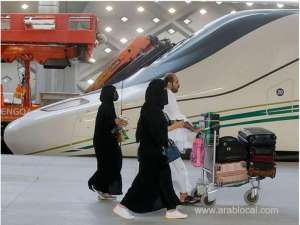According to Saudi Arabia's government labor platform, recruitment offices are responsible for ensuring domestic workers undergo a 90-day probationary period.
As part of its efforts to regulate the labour market, the Saudi Ministry of Human Resources has set up the Musaned domestic labour platform to help clients learn about their rights and duties, as well as related services, like visa issuance, recruitment requests, and contractual relations between the employer and the worker.
In response to a question from a Saudi citizen, Musaned has indicated that the recruitment office is responsible for the worker it has brought in starting from the date of arrival for at least 90 days.
When the first party's responsibility expires, the second party, i.e. the employer, will be responsible for the worker.
Additionally, Musaned helps regulate and automate the recruitment process by giving the customer access to all recruitment offices in the kingdom and allowing them to decide which one is most suitable, based on price, and feedback from previous clients, without having to visit each one.
Using Musaned, the Kingdom's official recruitment platform, the ministry has made the contracting process mandatory.
Non-Saudi workers' expenses, including recruitment fees, iqama fees, and work permits, are borne by their employers, according to Saudi labor authorities.
Besides profession change fees, exit/re-entry fees and the employee's home return flight ticket after the contract has ended, the employer also bears these expenses.
There is a large community of migrant workers in Saudi Arabia.
As a result of major labour reforms in 2020, the sponsorship system in the kingdom was drastically improved. In the ensuing year, the reforms allowed job mobility and regulated visa issuance for expatriate workers without their employers' permission.









